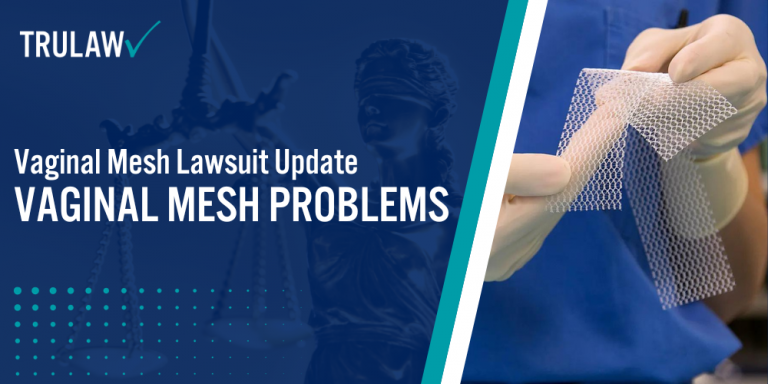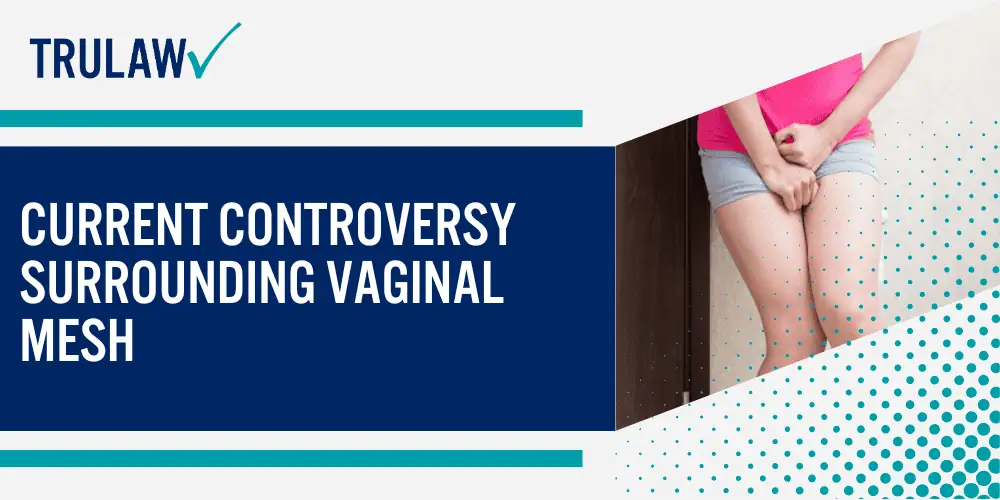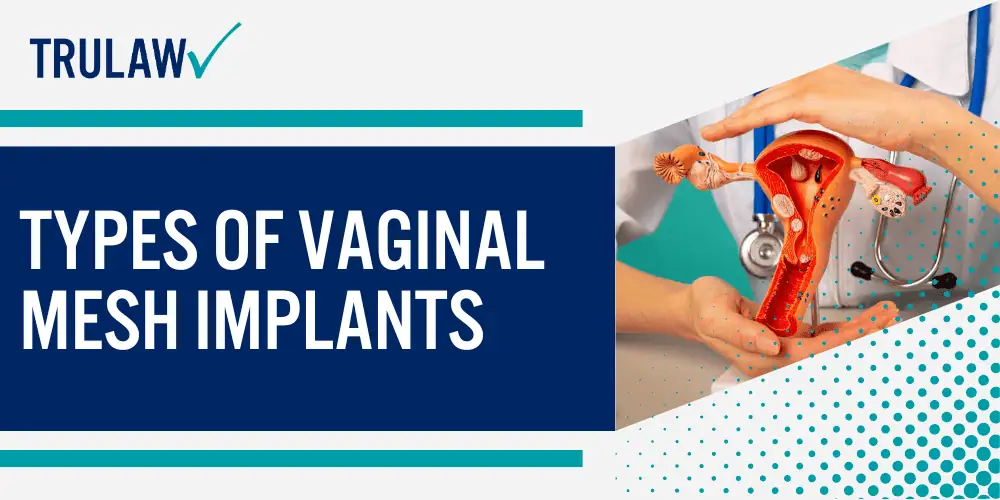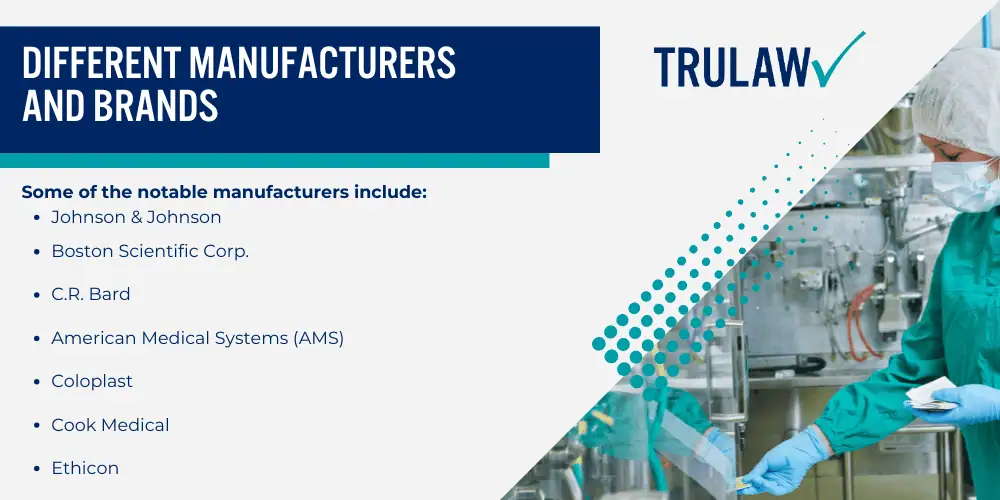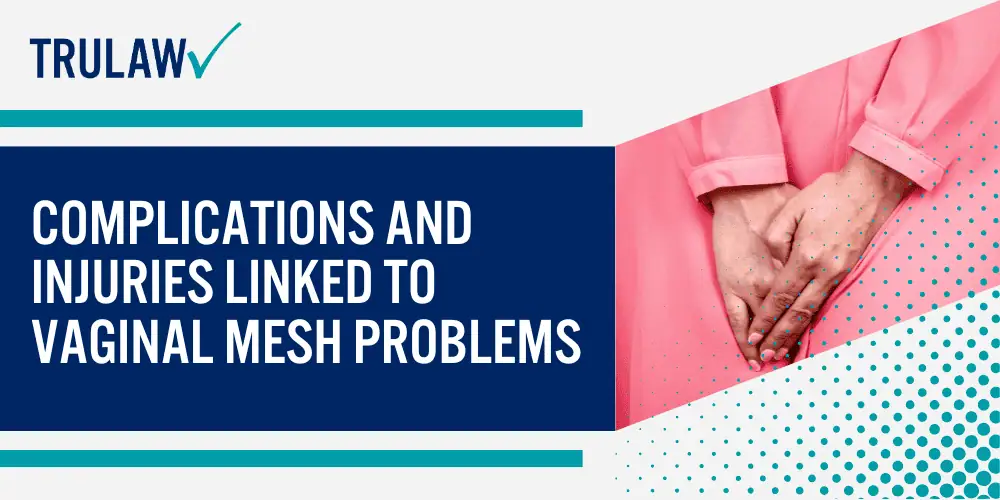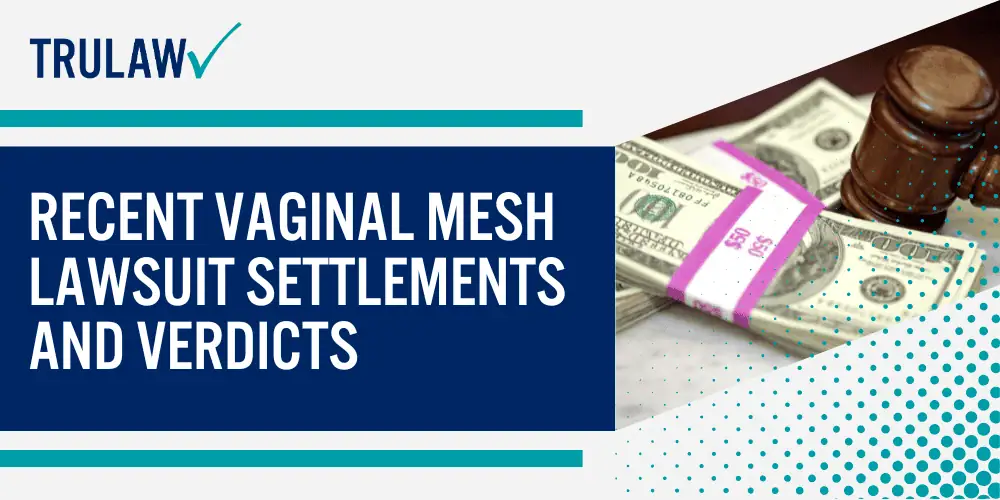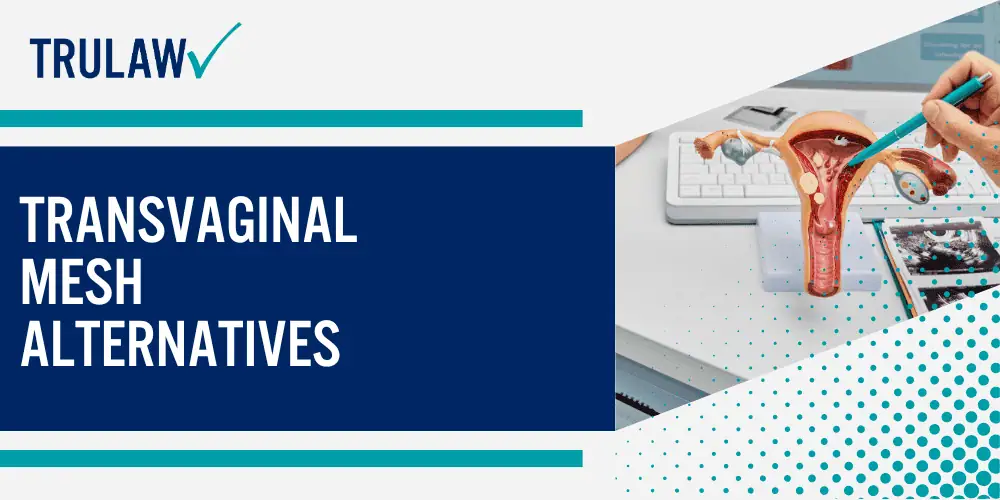Vaginal mesh, also known as transvaginal mesh or surgical mesh, is a net-like implant used in female pelvic reconstructive surgery to support weakened vaginal walls and treat pelvic organ prolapse (POP) and stress urinary incontinence (SUI).
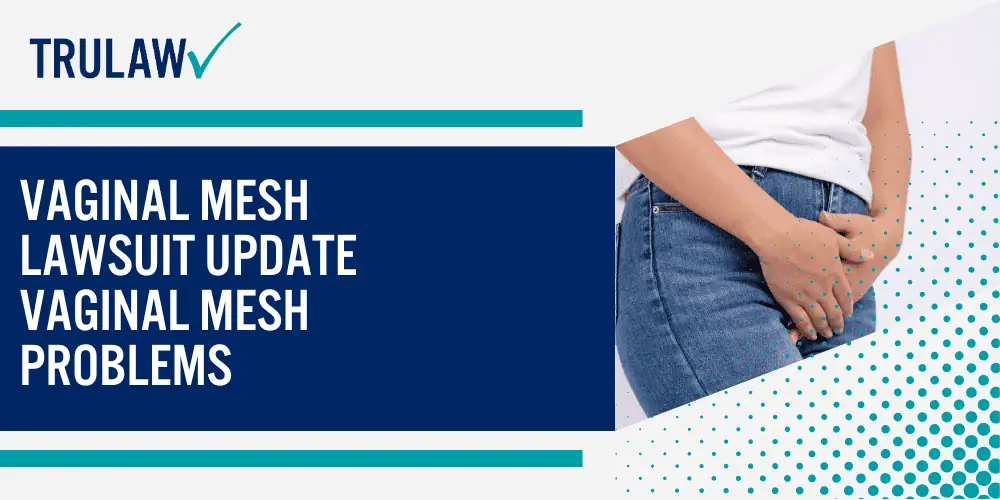
Purpose of vaginal mesh
The primary function of vaginal mesh is to manage symptoms of stress urinary incontinence (SUI) and pelvic organ prolapse (POP).
SUI is a condition that results in involuntary urine leakage during physical activities or even when sneezing or coughing.
On the other hand, POP occurs when weakened vaginal walls fail to support pelvic organs like the uterus, bladder, and rectum.
The mesh acts as a scaffolding to hold these organs in their correct positions, thereby improving comfort and functionality.
Types of mesh materials used
Various materials are used in the construction of surgical mesh devices for treating pelvic floor disorders.
These treatments include:
- Synthetic Polypropylene: The most popular and widely used material for surgical mesh devices, synthetic polypropylene is flexible, easy to work with and provides substantial reinforcement to weakened vaginal walls.
- Type I Monofilament Large-Pore Polypropylene Mesh: This specific type of polypropylene mesh finds extensive use in pelvic organ prolapse repair surgeries due to its robustness and durability.
- Biological Material: Some surgical meshes are made from animal tissues.
- Polymers: Alongside traditional mesh materials like polypropylene, surgeons sometimes use polymers for their superior flexibility and resistance to infection.
- Transvaginal Meshes: A net-like synthetic material, the transvaginal mesh offers additional support when repairing damaged or weak internal tissue during reconstructive surgery.
- Urogynaecological Meshes: Similarly designed like the transvaginal mesh, urogynaecological meshes help treat conditions such as stress incontinence that leads women to opt for this kind of surgery.
How the mesh is implanted
The surgical mesh is implanted through a small incision made in the vaginal wall.
This incision allows surgeons to place the mesh around weakened or damaged tissue, providing extra support for prolapsed organs.
The commonly used mesh for this purpose is the Type I monofilament, large-pore polypropylene mesh. Once implanted, the mesh serves as a reinforcement structure, helping to maintain the appropriate positioning of pelvic organs.
